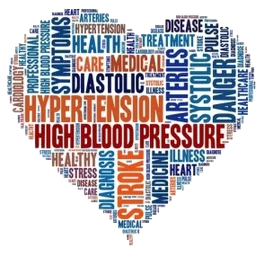Plan Your Pregnancy
Research Your Hospital
Select Your Health Provider
Prepare for Labor and Delivery
Congratulations! You’ve reached a defining moment in your life. You’ve decided to have a baby. Although not yet pregnant, there’s a lot of work that has to be done in order to achieve your goal of having a healthy baby. Unlike the 2 million women who have unplanned pregnancies in the United States each year, yours will be different because it involves strategic planning, so let’s get busy.
The old saying “fail to plan means plan to fail” holds true, especially if you have decided to have a baby. The decisions you make will not just involve what color to paint your baby’s
nursery or who to invite to a baby shower. You will have to decide whether to see a midwife, a family practice doctor or an obstetrician for prenatal care. Each one of those providers has a different level of training and education.
You must determine whether you are healthy enough to have a baby or what to do if you have pre-existing conditions such as diabetes, high blood pressure, sickle cell disease, cystic fibrosis or an autoimmune disease such as Lupus that could affect the outcome of your pregnancy or even your own health. So, let’s talk about your health for a moment. If you have any of the pre-existing conditions mentioned, you should plan to see a maternal fetal medicine specialist who is a high risk pregnancy doctor. Although you’re not pregnant at the moment, he or she will be able to counsel you regarding what tests you might need, medications or necessary treatment before you become pregnant.
How’s your weight? No, it’s not a loaded question nor is it an attempt to make you red-face with embarrassment. If you are underweight because of an eating disorder you might have difficulty ovulating or maintaining a pregnancy if your body fat is not at least 22%. On the other hand, if you are obese, meaning you have a BMI of greater than 30, you might not be able to ovulate and without ovulation, pregnancy cannot occur. If you’re having weight issues, it’s important to get them addressed before you attempt to get pregnant because the complication rate for pregnant obese women is extremely high.
Old habits might be hard to die, but smoking must definitely be eliminated if you are planning to get pregnant. Smoking has been associated with miscarriages, premature births, small babies and fetal distress. Smoking has harmful substances such as


Are you up to date with your vaccines? If not, please do so. Measles, mumps, rubella (aka German measles) a, diphtheria, polio and varicella (aka chickenpox) vaccinations should be up to date and cannot be given during pregnancy. Varicella during pregnancy can cause life-threatening pneumonia and rubella can cause hearing loss, blindness and intellectual disabilities of babies. If you are a healthcare professional, you should also be given hepatitis vaccines as well.
A word about nutrition is also in order if you’re planning to become pregnant. You must take at least 400 micrograms of folate acid each day to prevent birth defects such as Spina Bifida. Folate acid is part of vitamin B and should be taken before you become pregnant in order to have its protective effects.
Planning a pregnancy may not be easy but remember, a healthy pregnancy doesn’t just happen. It takes a smart mother who knows what to do.
PRECONCEPTION COUNSELING (Advice Before Becoming Pregnant)
THE THREE MAJOR GOALS OF PRECONCEPTION CARE ARE TO:
1. Identify potential risks to the mother, fetus, and pregnancy.
2. Educate the woman about these risks, options for intervention and
management to reduce risk, and reproductive alternatives.
3. Initiate interventions to provide optimum maternal, fetal, and pregnancy
outcomes. Interventions include motivational counseling, disease
optimization, and specialist referral.

There is limited evidence as to the best means for achieving these goals according to medical studies but going over the checklist below will help.
Checklist:
- Ovulation – do you have normal periods?
- Any sexually transmitted Infections (STI)? If so, they must be treated to avoid infertility issues (scarring of your fallopian tubes), preterm labor and certain types of infections are extremely harmful to newborns (for example: syphilis).
- BMI (Basal Metabolic Index) over 40?
- History of Chronic HTN (high blood pressure that happens before you become pregnant)?
- Type 1 or 2 Diabetes
- Member of ethnic group?
a. Black or African American? – increased risk of maternal mortality, gestational diabetes
b. Latinx – Increased risk of gestational diabetes
c. Native American – gestational diabetes
d. Jewish – Cystic Fibrosis
NOTE: 30% of pregnant women start prenatal care in 2d trimester when organogenesis (development of the baby’s organs) already occurred
Presently using contraception?
ADDITIONAL RESOURCES FOR PRE-PREGNANCY COUNSELING:
Center for Disease and Control (CDC)
https://health.gov/myhealthfinder
March of Dimes

